Movies and rap music have more in common than people realize. Both are forms that sample and appropriate elements from other facets of popular culture. They swallow these elements whole and regurgitate them as something brand new, or at the very least unrecognizable. Both rappers and filmmakers have a keen awareness of the world they live in. That awareness informs the output of their respective forms.
Rappers have a voracious appetite for movies and are highly influenced by them. Rap songs have sampled bits of dialogue as well as musical scores from films. Movies and movie characters have inspired both songs, album titles, and the very names of rappers themselves. In recent decades that influence ceased to be one sided as Hollywood realized the economic and artistic potential of Hip-Hop culture and have appropriated it to keep their works relevant to younger audiences. Rappers are now involved in almost every facet of the filmmaking process.
Planet Ill now takes a look at some of the movies that had a hand in shaping our culture. Not “Hip-Hop” films per se, but movies that have enthralled rappers and rap fans alike. While it is nearly impossible to narrow these selections down into single digestible list, there are certain standards and classic that warrant special mention. Just as many of you have seen these films countless times, so have your favorite Rap artists. It is Planet Ill’s pleasure to present to you the most influential films in Hip-Hop.
Tony Montana (Al Pacino) and Manolo “Manny” Ribera (Steven Bauer) are displaced Cuban refugees who violently fight their way to the top of Miami’s cocaine trade in the early 1980’s. As Tony’s appetite for money and cocaine become insatiable, his greed and delusions of grandeur threaten to swallow his empire whole. Tony’s trophy wife Elvira (Michelle Pfeiffer) stands numb in the midst of the maelstrom as Tony self destructs in the most flamboyant possible.
Though it did mediocre business at the domestic box office, Brian De Palma’s remake of the 1932 Howard Hawks classic has since gone on to become a pop culture juggernaut. Hip-Hop has the distinction of being the first medium to acknowledge that influence. Since the late 1980’s, Rappers from different regions and subgenres have constantly referenced the film. Tributes have ranged from sampling bits of dialogue and the musical score to remaking songs form the soundtrack.
In the post “gangsta rap” era, that influence may seem to have waned, but rest assured that Brain De Palma’s epic dirge about greed and excess still resonates with a culture that has always been enamored by such things. The phrase made popular by the film could easily be the mantra of every Hip-Hop entrepreneur who ever lived: “The World is Yours”
John Mickens is a newly released ex-con. In a bid to take over Oakland’s pimp game, he reinvents himself as “Goldy”. With the help of his pal Slim (Richard Pryor) he evades racist cops as well as the vigilante actions of his revolutionary and militant minded brother Olinga (Robert E. Mosley).
The Mack was one of the most popular black exploitation films of its day. It introduced the concept of the “Player’s Ball” to the general public, which has provided fodder for endless parody and homage. Despite its budgetary limitations and lurid subject matter, its appeal endures thanks to a screenplay chock full of quotable dialogue that has been exploited by the likes of Too $hort, Ghost Face and many others. Its impact on the Bay area rap scene in particular cannot be understated. It was filmed on location in Oakland and has since become a part of that city’s mythology.
Delegates from New York City’s street gangs congregate at a war council in The Bronx. The meeting was coordinated by Cyrus (Roger Hill) leader of New York’s most powerful gang, The Grammercy Riffs. When Cyrus is gunned down in cold blood during a speech, The Warriors are accused of pulling the trigger. The Warriors must now make a dangerous trek on foot from The Bronx to Coney Island. Along the way they must do battle with every single gang along that route as The Riffs have placed a bounty on their heads. Not to mention the swarms of uniformed cops looking to bust heads and fill paddy wagons.
Based on Sol Yurick’s novel, The Warriors is a comic book fable in the purest sense of the phrase. The surrealist color palette and over the top costumes and make up firmly place it in the land of make believe. Though its gritty tone suggests a bid for realism, the film is anything but. Though it is undeniably dated, it remains thoroughly enjoyable on its own terms. Its levels of kitsch and unintended camp might make it seem like a time capsule antique that is meant to be enjoyed ironically. However, director Walter Hill’s old fashioned storytelling sensibilities elevate it the level of myth.
The film’s most famous line “Warriors, come out to play”, has been imitated and referenced in dozens of songs, as has the war council sequence that was actually inspired by real life events. Though the film is clearly fantasy, its visual motif mirrors the New York City gang culture that gave rise to Hip-Hop Culture as a whole. The Warriors stands as a Hip-Hop themed film before there ever was such a thing.
Superfly (1972)
Priest (Ron O’Neal) is a successful cocaine dealer growing tired of the life. Despite the protests of hi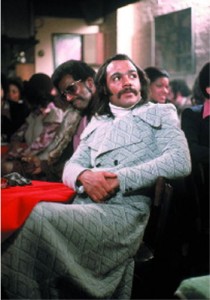 s friend and partner Eddie, he devises a plan to get out of the business. The plan entails acquiring and dealing enough coke within a month to allow both Eddie and Priest a lavish early retirement. However, the corrupt cops who oversee the drug trade have other ideas. Will Priest realize his dreams of a better life, or will the streets confine him to a never ending cycle of hustling?
s friend and partner Eddie, he devises a plan to get out of the business. The plan entails acquiring and dealing enough coke within a month to allow both Eddie and Priest a lavish early retirement. However, the corrupt cops who oversee the drug trade have other ideas. Will Priest realize his dreams of a better life, or will the streets confine him to a never ending cycle of hustling?
The central idea of the film, liberation through hustling (or hustling being used as a means to simultaneously undermine the system and emancipate oneself from it), has become a reoccurring theme in rap songs that focus the drug trade. Curtis Mayfield’s immortal soundtrack has been sampled countless times, and Ron O Neal’s portrayal of Priest as an introspective and dashing rogue has clearly made an impression on a generation of rappers.
Not surprisingly, the film was subjected to the same sort of criticism that Gangsta rap would be decades later. It’s portrayal of the drug trade was seen as glorification by some, realism by others. The parallels between Gangsta Rap and Black Exploitation are innumerable. If nothing else, Superfly is a testament to how America’s fascination with underworld antiheroes does didn’t start with the Hip-Hop generation. As we were enamored with gangsters, so were our parents.
Enter Henry Hill (Ray Liotta), an aspiring mobster whose mixed racial heritage keeps him from becoming a “made” member of La Cosa Nostra. Though he is relegated to associate status, that does not stop him and his pals Tommy Devito (Joe Pesci) and Jimmy Conway (Robert De Niro) from taking down one score after the next. Their crimes range from petty hustles to large scale heists to murder. Henry’s wife Karen (Lorraine Braco) is initially taken aback by this lifestyle, but quickly becomes acclimated to it. Henry’s love affair with a life of crime sends him speeding down the fast track of life.
Director Martin Scorcese’s instantly recognizable visual style has been imitated in countless rap videos. Goodfellas was one of the first films to offer a blue collar view of mob life that stood in stark contrast to the plush upper echelon setting of The Godfather films. The sudden, bloody violence closely mirrored the carnage that became all too routine in America’s streets during the crack era. The film itself served as a blueprint for perhaps the best “Hood” film of them all, Menace II Society.”
Tune in tomorrow for part 2.
Follow Malice Intended on Twitter @ http://twitter.com/renaissance1977
Follow Us on Twitter @ http://twitter.com/planetill
Join Us on the Planet Ill Facebook Group for more discussion
Check out Planet Ill’s page on Essence.com
Follow us on Networked Blog

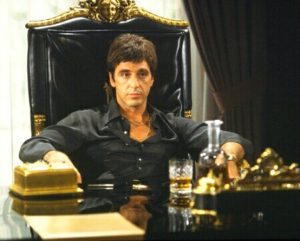
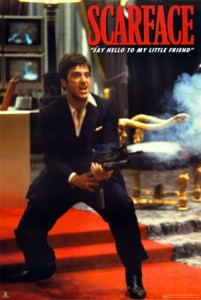
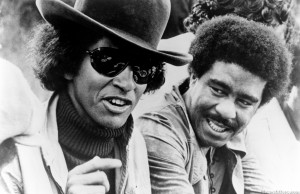
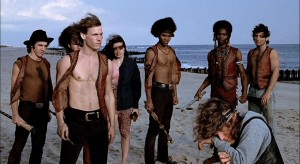
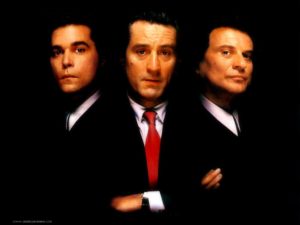
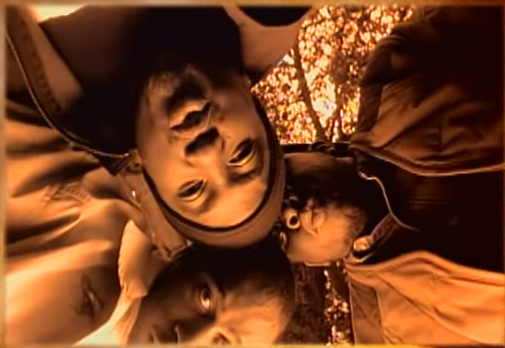
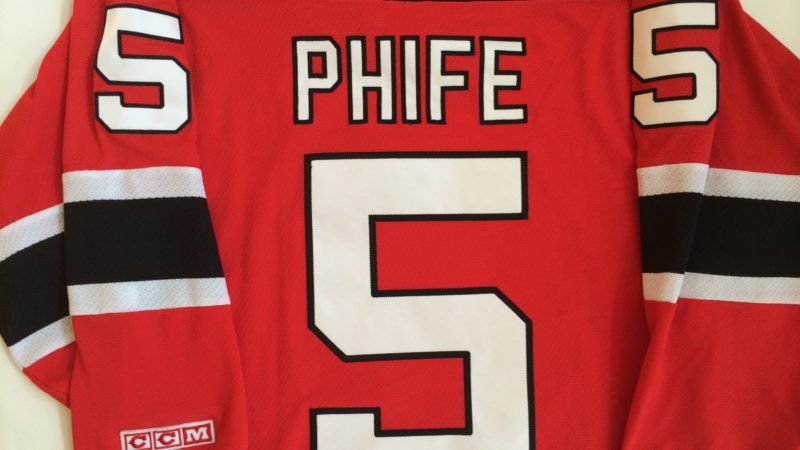

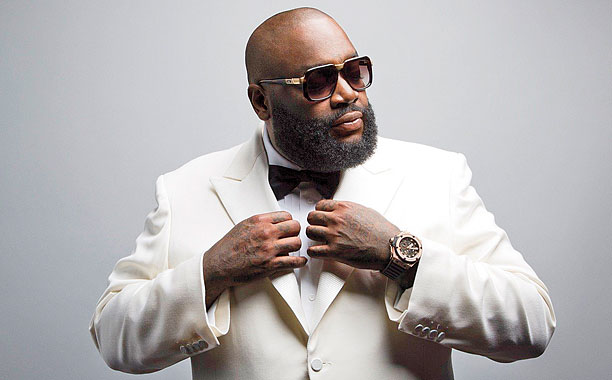
man, this article deftly ran between fanboy giddy geekness and informative cerebral pop culture history report. it is smart, accurate, true, and every bit as important as anything you’d find in a mainstream magazine or tv entertainment news show.
props, this is a great piece of work.
This is a great concept and these are definitely some classic flicks!